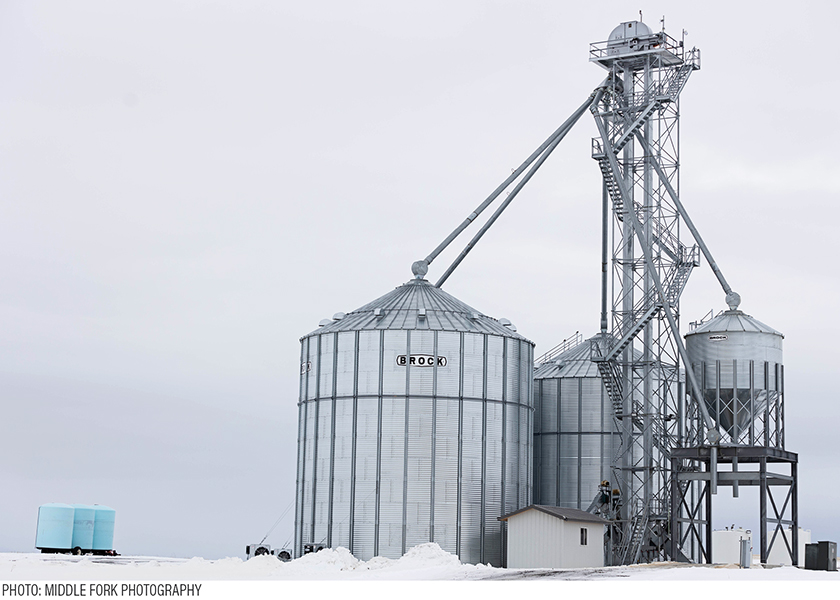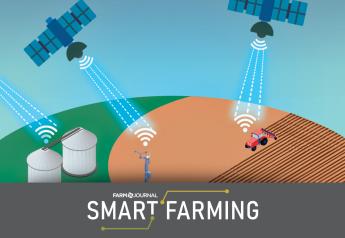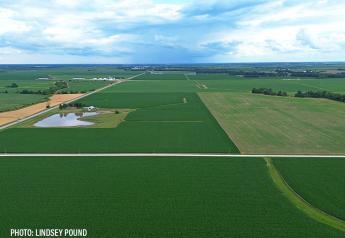How Do You Add Value to Commodity Crops? Build a Niche Market, Proves Idaho Operation
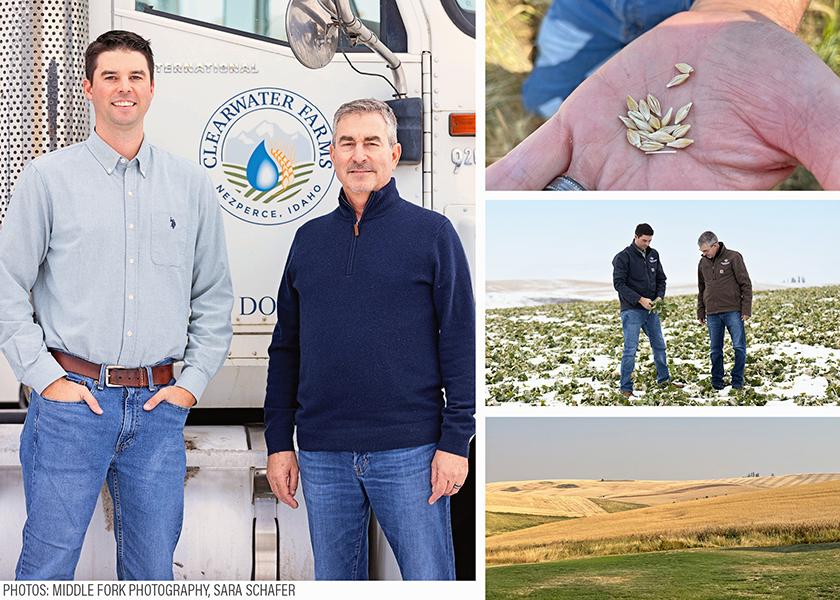
Idaho operation builds niche business to complement core crops
Faced with multiple years of stagnant prices, Christopher Riggers and his father, Nate, knew it was time for a creative approach. The farming pair had built their Idaho operation around a diverse roster of nearly 10 fall and spring crops, but they were leaving money on the table.
How do you add value to commodity crops? Build a niche market.
“Our region is perfect for growing high-quality malting barley,” Christopher says. “The problem is we just haven’t had a good market in this area for a long time.”
GEOGRAPHIC ADVANTAGE
Many of the major beer producers want to source barley close to their malt houses, which are hours or states away from the Riggers’ operation in Nezperce, Idaho. But in the past decade, craft malt houses have surged alongside craft breweries. As of 2021, Idaho is home to 83 craft breweries, and Washington is home to 437, per the Brewers Association.
Combining their geographic and agronomic advantages, the Riggers partnered with Horlacher Farms in Latah, Wash., in 2020 to form Cold Stream Malt & Grain Co.
“We market grain directly to craft malt houses in the Northwest as well as our own branded, finished malt to craft breweries and distilleries,” Christopher says. “We highlight our direct-from-the-farm sourcing and emphasize our conservation focused farming practices.”
The company, with a simple slogan of, “Great malt doesn’t begin in the steep tank, it begins in the soil,” has far exceeded their expectations and profit goals.
“By processing and marketing the barley ourselves, we’ve added value beyond what we would typically receive through our traditional marketing channels,” Christopher says.
Beyond helping the Riggers insulate their balance sheets from volatile commodity cycles, the business also lets them use core assets (grain bins, machinery, etc.) and employees more efficiently.
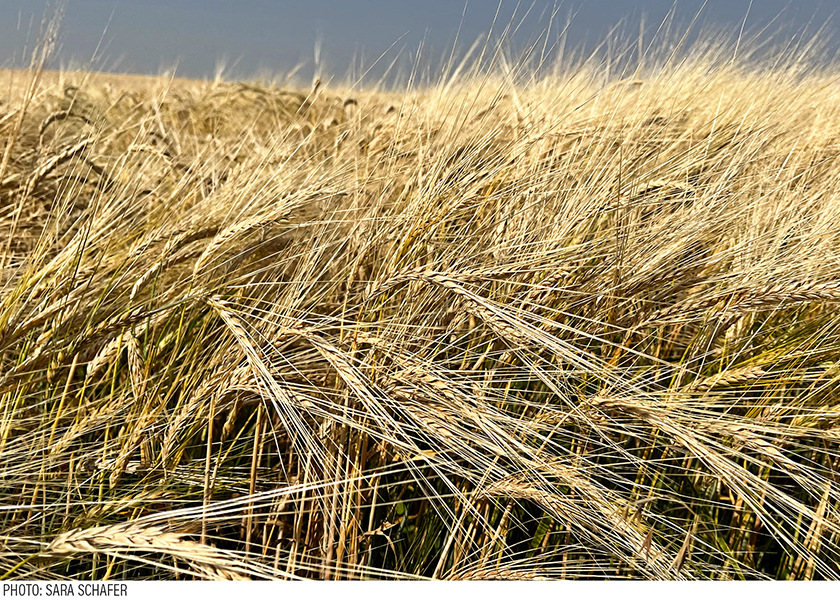
LEARN AND RETURN
The Riggers’ craft malt business is the latest in a long history of innovation. Their family traces farming in Idaho back to 1895. After graduating from the University of Idaho in 1987, Nate worked for several years in the grain and seed industry. In the early 1990s, his father was ready to retire, so Nate joined his brother, Steve, as a farm partner.
“When my dad retired, we were farming around 1,500 acres,” Nate says. “We doubled the acres in the span of a few years and then have had slow and steady growth. It’s always easier to manage your capital risk with that kind of growth.”
As a kid working alongside his father and uncle, Christopher had no doubt he wanted to farm, but before doing so, his parents wanted him to experience the corporate world, learning how to lead employees as well as learning how to be led. So, after graduating from Purdue University, Christopher worked as a grain merchandiser for a several companies throughout the Midwest and Montana.
In 2017, Steve wanted to retire, which allowed Christopher to join the farm. With his wife, Natalie, Christopher moved back to Idaho and started as a full-time employee.
“At the end of 2018, with the help of our accountant and attorney, we valued the business and created a stock buyout of my brother and his wife,” Nate says. “Then Christopher and I began that buyout, so he and his wife could begin accumulating ownership in the farm.”

CANCER CURVEBALL
Consequently, the timing of Christopher’s return was perfect. A year later, Nate was diagnosed with multiple myeloma cancer.
“From the winter of 2019 to the fall of 2020, dad was undergoing treatments and chemotherapy,” Christopher says. “That was a hard time, since I’d only been on the farm for two years and just felt like I was getting a grasp of things.”
While Nate focused on his health, agronomists, neighbors and consultants stepped in to be a sounding board for Christopher. In addition, a network of Nate’s friends, many from when he attended The Executive Program for Ag Producers (TEPAP) in 1998/99, were on call.
“Some of these folks have become like family to us, and they feel like our neighbors even though they might be 2,000 miles away,” Christopher says. “There are people who I talked to every day that year.”
Now cancer-free, Nate serves as the CFO and business manager, focusing on administrative and financial elements for the farm. As CEO, Christopher leads daily operations, strategic planning and most of the relationship management.
These distinct roles have let Christopher grow as a leader and have given Nate time to pursue other opportunities, such as being board chair of Northwest Farm Credit.
“Between getting cancer in 2019 and then being on the board of directors, I’ve had a lot of opportunities to leave the farm,” Nate says. “It’s been a really a good tool for succession, even if we didn’t necessarily plan it that way.”
3,500' ELEVATION
With a solid structure in place, the Riggers are now focused on efficiency and growth. The operation, which sits at 3,500' in elevation, includes roughly 10,000 acres of fall crops (winter wheat, winter canola and Kentucky bluegrass seed) and spring crops (barley, spring canola and some legumes, such as chickpeas, lentils and green peas).
“The diversification of their crops provides an excellent risk management strategy,” says Joshua Huff, branch manager for Northwest Farm Credit Services.
“Our geography, elevation and somewhat mild winters allow us to grow the fall crops, which yield better than spring crops in our area,” Christopher says. “Being able to split between fall and spring crops, we’re able to cover more ground with less equipment and less people versus Midwest corn and soybean farms.”
For 10,000 acres, the Riggers use one air seeder, one sprayer and three full-time employees. Asset use and efficiency are a key focus for the team. In fact, it’s one of Christopher’s favorite parts about farming.
“I love evaluating the previous year, looking at what we did right and what we did wrong — just having a chance to learn every year,” he says.
These evaluations span input application timing, machinery upgrades, downtime and more. Challenges are identified and faced head on.
As the Riggers look to the future, Christopher knows that in farming and life, the greatest challenges often bring the greatest rewards.
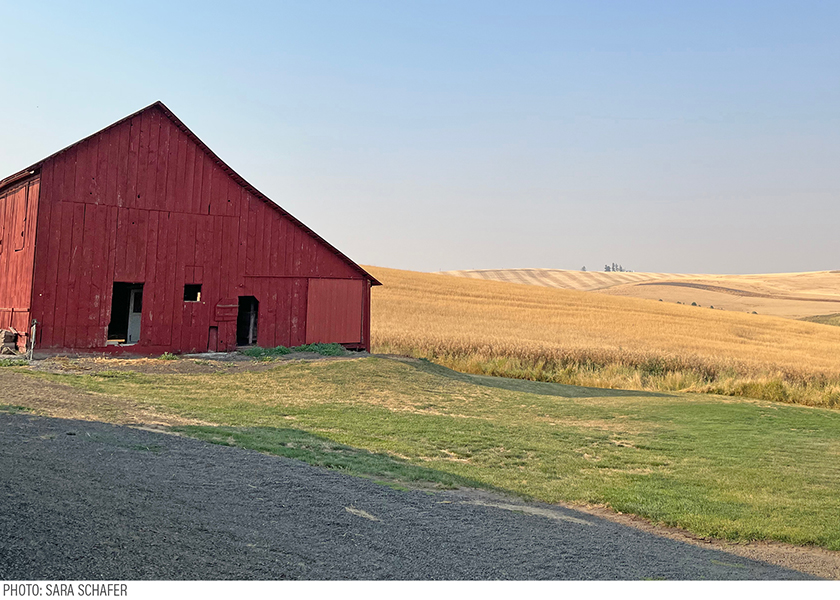
Snapshot of Clearwater Farms
- Operation and Family: Clearwater Farms is led by father-and-son duo Nate and Christopher Riggers. It includes around 10,000 acres of crops. Nate’s wife, Christine, and Christopher’s wife, Natalie, work in local education. Christopher and Natalie have three children, Will, 2, and twin girls, Georgia and Mabel, 1.
- Team: The Riggers’ goal is to provide people in their community with meaningful careers and growth opportunities. The team includes three full-time and three part-time employees.
- Focus on Sustainability: The Riggers prioritize conservation practices. Clearwater Farms is a certified Salmon-Safe farm, which shows they use practices to protect water and habitat.
- Business Venture: In 2020, the Riggers partnered to form Cold Stream Malt & Grain Co., which sells cleaned and processed malt barley and finished malt.
